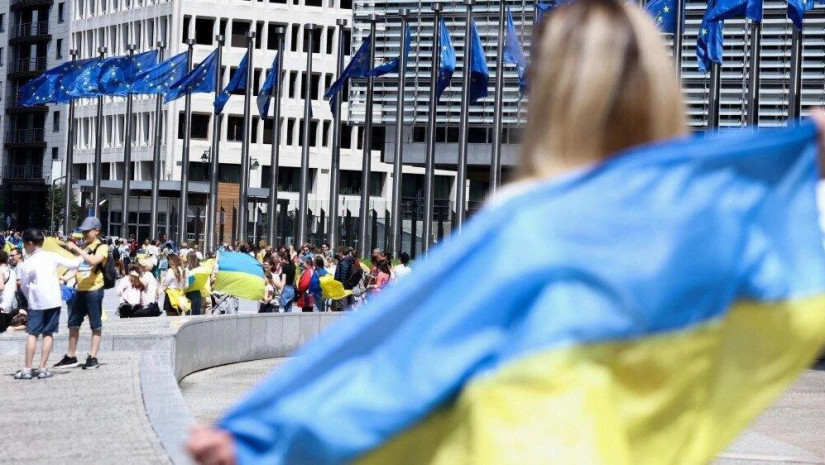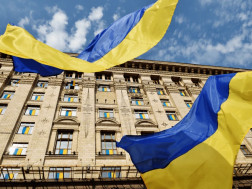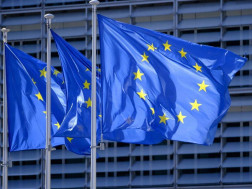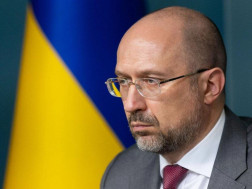The EU Council has adopted legislation to lend €18bn to Ukraine despite a veto by Hungary on December 10.
“Ukraine can count on the EU. We will continue to support Ukraine, also financially, for as long as it takes. The legislation which we adopted today means that Ukraine can count on regular financial help from the EU throughout 2023,” Zbyněk Stanjura, Minister of Finance of Czechia, said in the official press release.
The proposal will be submitted to the European Parliament “for possible adoption” this week.
The EC agreed that each member state will take on financial responsibility individually and the money will not be lent at EU level, to avoid the Hungarian veto. The loan would be provided based on bilateral agreements between 26 member states and the European Commission.
Orban's government has blocked the Ukraine loan as a way of bringing pressure on Brussels for the release of some €7.5bn in cohesion funds and €5.8bn from the pandemic recovery fund (RRF) owed to Hungary but frozen because of its violations of the rule of law. Hungary is also blocking the EU from agreeing to a OSCE plan for a global minimum corporate tax, and it is dragging its feet on approving Sweden and Finland's applications to join Nato.
Hungary also opposed the new ninth package of sanctions against Russia and lobbied to have it watered down. As these EC decisions have to be passed unanimously, Hungary in effect holds a veto over the decision. Some diplomats are already concerned that Hungary will hold all future EU decisions hostage.
On December 12 EU foreign ministers are due to begin debating increasing the European Peace Facility (EPF), the bloc’s fund used to finance arms purchases for Ukraine, which currently has a ceiling of €6bn.
EU leaders are set to meet on December 15 to focus on Ukraine, energy industry, defence and security, and external relations. At the summit, member states could also vote on the European Commission’s recommendation on keeping cohesion funds frozen for Hungary.
The assistance agreed on December 10 is to help Ukraine pay for its acute needs, renew the critical infrastructure and begin its post-war reconstruction, and to support Ukraine on its path towards European integration.
Member states will cover the bulk of the interest costs of the loans, with a 10-year grace period, via external assigned revenues. The guarantees for that borrowing will be provided either by the EU budget or by member states, the European Council said on Saturday.
Ukraine received $27.2bn in financial aid after Russia launched a special military operation in late February, the country’s Deputy Finance Minister Roman Ermolichev said.
Ermolichev added that next year the amount of assistance will increase up to about $38bn to cover the budget deficit. In November, Ukrainian Prime Minister Denis Shmyhal announced that Ukraine had received over $23bn in foreign financial aid.
Shmyhal said the €18bn financial assistance package will cover the budget deficit in terms of necessary non-military spending. Shmyhal noted that his country is also expecting the US Congress to approve allocation of financial aid worth $37.7bn next year, bne reports.















